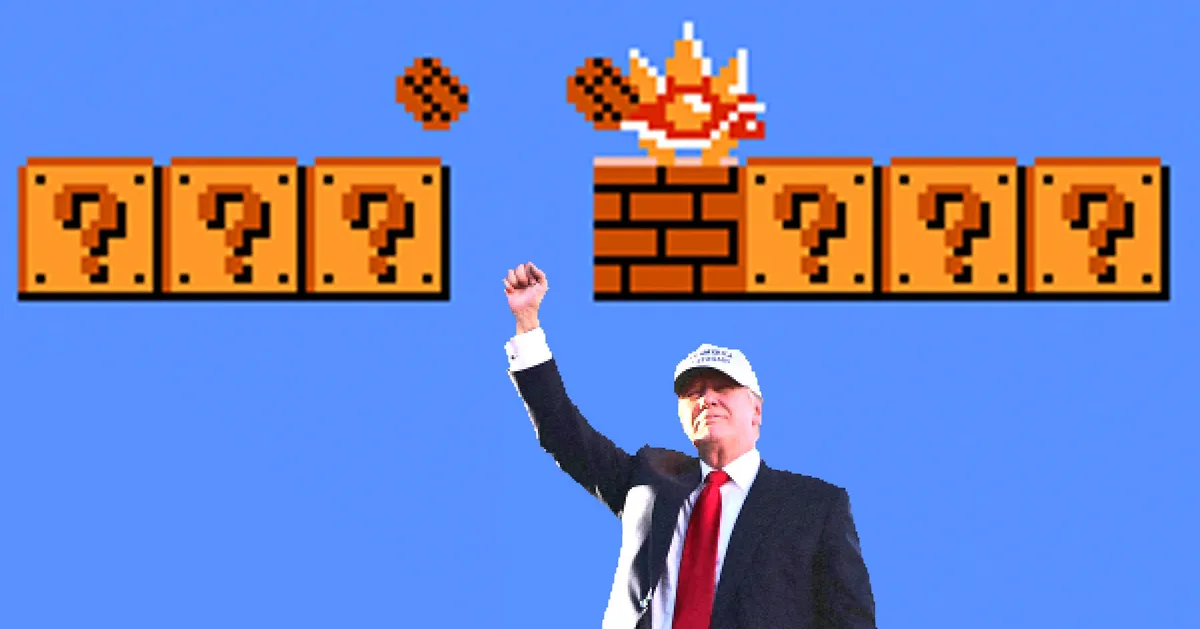How A Kenyan Startup (Plus Donald Trump) Is Lifting Africa’s Gaming Industry

Evans Kiragu, on the back of taking up programming in his teens and becoming Lead Game Developer at Nairobi-based Mekan Games at 22 years of age, had already created more than 80 mobile games by the time he arrived in South Africa last year for a four-month training camp for promising game developers.
That event would yield a result that exceeded his wildest dreams: a game that rocketed to the top of the U.S. download charts.
The amusing game that brought some measure of breakthrough, “The President”, is a satirical creation based on a fictionalised version of former U.S. President Donald Trump, inspired by the former U.S. President’s uncanny ability to remain at the centre of polarising and, at times, comical issues in public discourse, Kiragu revealed to Bloomberg.
“We decided to zone in on the humour — it is about being a powerful president but making very silly, hilarious decisions as you go,” he said. “It worked like magic.”
The game was created by Kiragu and his team at Mekan Games; a Kenyan company which describes itself as “a mobile video game studio, creating truly immersive hypercasual games.”
The game came together under the creative atmosphere at a training course in Cape Town last year, which was co-hosted by South African game publishing startup Carry1st and CrazyLabs; a global leader which boasts more than 4 billion downloads.
The game went on to occupy the top spot on the U.S. charts for a while in July this year, helping Mekan Games to earnings of around USD 1 M, per reports.
An impressive achievement in its own right, Kiragu and Mekan Games are among the exciting players in Africa’s nascent but promising gaming industry, which has commanded a small yet significant investment in recent times amid the wider tech boom on the continent.
Cordel Robbin-Coker, Co-Founder/CEO of Carry1st, claims there are about 200 million gamers on the continent, generating more than USD 1 B in revenue – observably thrice the numbers from 2015 with continued rapid growth on the horizon.
“It is really tough to make a commercially successful game and it is amazing that in our first cohort, we had a team from Kenya that had one,” Robbin-Coker said. “The US is the biggest, most competitive market.”
On their part, Carry1st closed an impressive USD 20 M Series A extension earlier this year from global investors including Andressen Horowitz, Alphabet Inc.’s Google, and Avenir Growth Capital to turbocharge its content portfolio and user base.
Nevertheless, Robbin-Coker says the startup is exploring additional funding opportunities having doubled its team and increased annual revenue fivefold.
The feat achieved by The President “shows what kind of latent talent is here but isn’t being tapped,” he said. As for the continent’s gamers, the prevalence of mobile phones helped expand the appeal to lower-income earners and to women, he noted.
“It is there for the taking. The continent is the market easiest for us to dominate in a very short time,” said Robbin-Coker. “The current social awakening toward global content, as seen in the global popularity of Afrobeats or Korean music, can translate to games too,” he argued.
However, there’s much to do as the African continent accounts for just 1 percent of the USD 100 B global gaming industry. Hence, the likes of Mekan Games will continue to focus on more developed markets such as the US, Kiragu said.
Feature Image Credits: NYmag